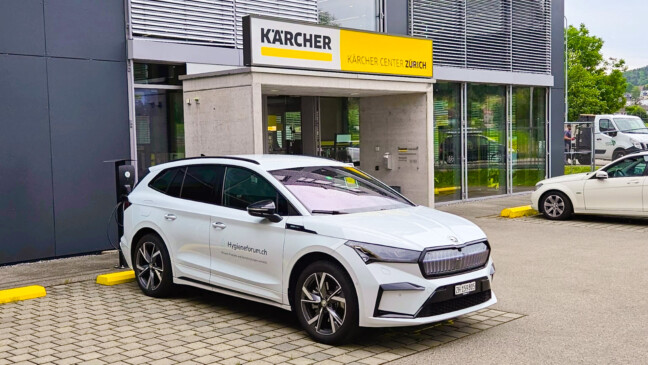
07.08.24
Interview with Roland Langenegger – Application Engineer at Diversey
Roland Langenegger, Application Engineer at Diversey, talks about the importance of cleaning robotics in the latest interview in our podcast. He gives us an insight into the history of robotics at Diversey.
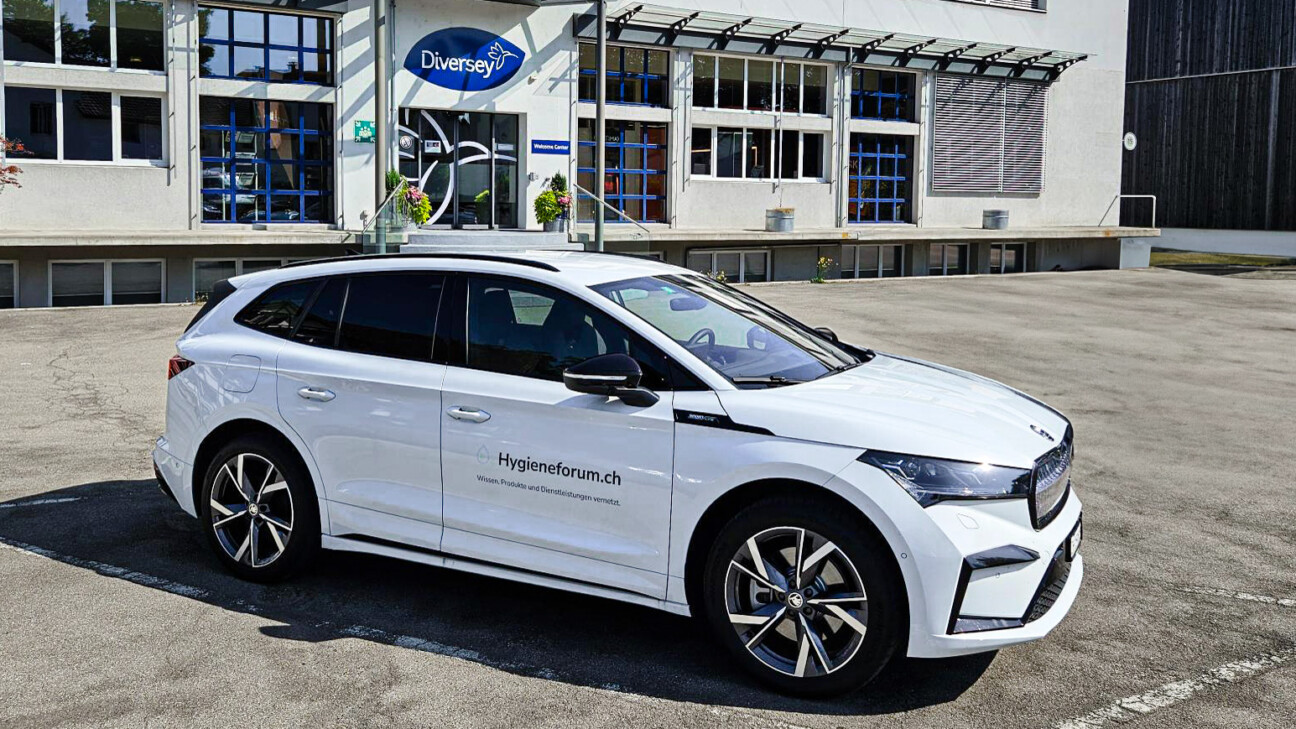
Immerse yourself in the world of modern cleaning robotics in our interview with Roland Langenegger, an experienced application engineer at Diversey. He has been working in the industry for 29 years and shares his valuable insights and experience on the developments and challenges of cleaning robots. Find out more about the beginnings, current trends and future possibilities of modern cleaning technology.
The video:
The interview:
Matthias Dürig: Hello Roli, thank you very much for being an expert in the field of cleaning robotics for our podcast. I am delighted to be here today at Diversey-Solenis in Münchwilen for the interview. Please introduce yourself to our listeners.
Roland Langenegger: My name is Roland Langenegger and I am an application engineer at Diversey. I am mainly involved with Taski machines and cleaning chemicals. My jobs include leading training courses, co-developing new machines and providing support at our training center in Münchwilen, where we run various specialist courses. I’m also involved in testing new chemical developments, such as dispersions or cleaning agents. Over the decades that I have been involved, I have acquired the relevant knowledge. I am happy to pass this knowledge on both internally and to our customers. And for some years now, I have also been heavily involved in robotics. Everything that has to do with Taski and cleaning is my purpose in life.
Matthias Dürig: You haven’t just been around for 2-3 years.
Roland Langenegger: No, for 29 years now. And the nice thing is that cleaning is always needed, because there is dirt in every building. Cleaning and hygiene are in demand everywhere.
Matthias Dürig: Exactly. Let’s jump straight to the questions I’d like to ask you: When were your first points of contact with cleaning robots?
Roland Langenegger: It was over 20 years ago that we developed the first Taski cleaning robot. Back then, we took existing machines and equipped them with sonar and control technology based on relay controls. The whole thing was state of the art at the time. We quickly realized that the challenge was great. The devices had not yet really found their way around the building. Things really took off around 10 years ago when our company bought Intellibot. This company was heavily involved in robotics in the USA. By this time, I had learned about the possibilities, but also the limits, of robotics.
Matthias Dürig: Limits is a good keyword: What were the biggest weaknesses of these beginner devices?
Roland Langenegger: We called the first machine Swingobot 2000. We developed this machine ourselves and used the intelligence of Intellibot. This was the first time we used laser technology. This laser technology (LIDaR) was still extremely expensive. It accounted for around a third of the machine price. Nevertheless, the technology was still in its infancy. Added to this was sonar technology, which was unfortunately very susceptible to interference from light, door sensors and other building installations. The robots worked in very simple objects. However, as soon as the area was covered or there was public traffic, the robots stopped.
Matthias Dürig: Are there any challenges that still exist today?
Roland Langenegger: It is difficult for outsiders to understand that the machine cannot communicate with lift systems or that it does not yet open doors independently. It’s only when you delve deeper into the subject that you realize how complex it is. The systems are very heterogeneous. We are still working on this.
Matthias Dürig: Where were you able to support your customers most actively during the start-up phase?
Roland Langenegger: Initially, everyone thought: “I need robotics”. However, people underestimated what was needed for the robot to make sense as a supplement. I actively advised the customers and explained from the robot’s point of view where a robot works and makes sense. That was my best experience.
Matthias Dürig: How has the use of cleaning robots changed in recent years?
Roland Langenegger: The topic is becoming increasingly important and topical. You have to ask yourself, what can robots actually do? The answer is: simple, boring work that humans don’t like doing anyway. Nevertheless, existential fears continue to arise. People are afraid of losing their jobs. That’s why good onboarding of cleaning staff is extremely important. And in my experience, you can’t save on staff by using a robot, but rather use people for other, even more important work. Demand is particularly high in the healthcare sector, as important tasks such as glass cleaning and basic cleaning are labor-intensive. The robot then takes over the simple surface cleaning.
Matthias Dürig: What has changed for you as a specialist in recent years?
Roland Langenegger: When I walk into a property, whether for business or pleasure, I immediately think, would a robot make sense here? Now that we have such a sophisticated robotics product, I enjoy representing this machine sector even more. That’s why I really enjoy talking about the machines. Honesty is very important to me. Unlike a pure salesperson, as a technician I am primarily interested in the proper functioning of the machine. That’s why I give advice very openly and transparently.
Matthias Dürig: Are there any changes, possibly also of a technical nature, that support you in your work?
Roland Langenegger: When I install robots, it is important to me that I train the operator well. After the training, they can communicate with the robot online. As an expert, I can also provide electronic support via the app and help the end customer with advice and assistance. The fact that I don’t always have to physically approach the object helps me a lot.
Matthias Dürig: I see a lot of progress and improvements. Where are there still technical limits that clash with customers’ wishes and expectations?
Roland Langenegger: The machine operates autonomously, but is still equipped with the same tank systems, tools and extraction equipment as the previous machines. This means that the robots require the same cleaning, inspection and maintenance as the previous cleaning machines. With our robot in particular, we have a water recycling system that requires the tanks to be cleaned and the filters to be rinsed every day so that the machine is ready for the next job. The machine therefore requires maintenance.
Matthias Dürig: Which building would be ideal for robot use?
Roland Langenegger: A gymnasium or a large hall would be ideal. But that doesn’t mean that it won’t work in other venues. The new robots in particular are very good at dealing with overlapping areas. For example, if someone is standing in the way, it moves on and then comes back later. A sufficiently large area is important. In my opinion, a robot makes sense from 1,000 – 1,300 m2 per day. Basically, a robot is there to clean large areas and not corners and edges. This is more efficiently done manually.
Matthias Dürig: So the robot replaces the large appliance?
Roland Langenegger: Exactly. He can also drive into the laboratory and clean these small areas as well. It just doesn’t really make sense. The appliance is too slow and not efficient.
Matthias Dürig: Now I have a specific question. It’s also the final question: if you could choose freely, regardless of cost or technical limits, what function or capability should your device have next?
Roland Langenegger: Communication with other devices (elevator doors, etc.) would be very important. That’s where I see the most urgent need. What I would also like to see is an efficient docking station so that the machine can be used 100% autonomously.
Matthias Dürig: Finally, you have the opportunity to share any other thoughts or ideas that I have not addressed.
Roland Langenegger: I really enjoy showing the robots in many places. That’s fun for me. I always do a site check beforehand. However, this also means effort and costs, but is always credited when you buy.
I would like to have a larger robot for the future. There is still a lot of potential, especially in logistics (large warehouses). We still need a robotized sweeper for this. Otherwise, our robot customers are very satisfied. I hear very few negative things. Perhaps also because I take a lot of time to train the operators well. I am also available directly and without detours after the purchase.
Matthias Dürig: Thank you very much for your additional words. On behalf of the entire Hygieneforum team, I would like to thank you for your time and for sharing your expert knowledge with us.
Roland Langenegger: With pleasure and see you soon.
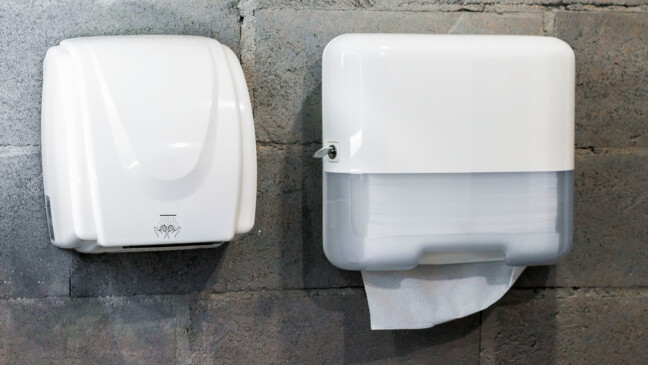
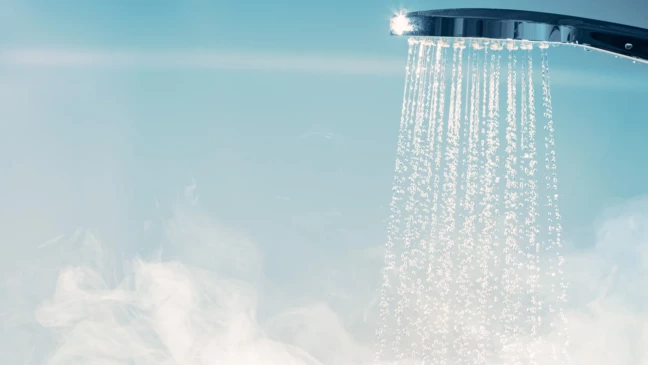
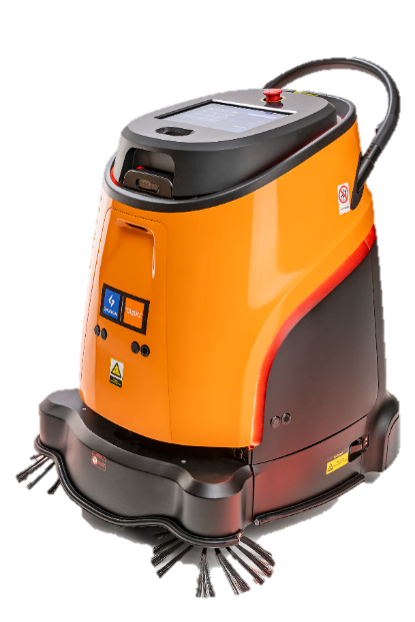
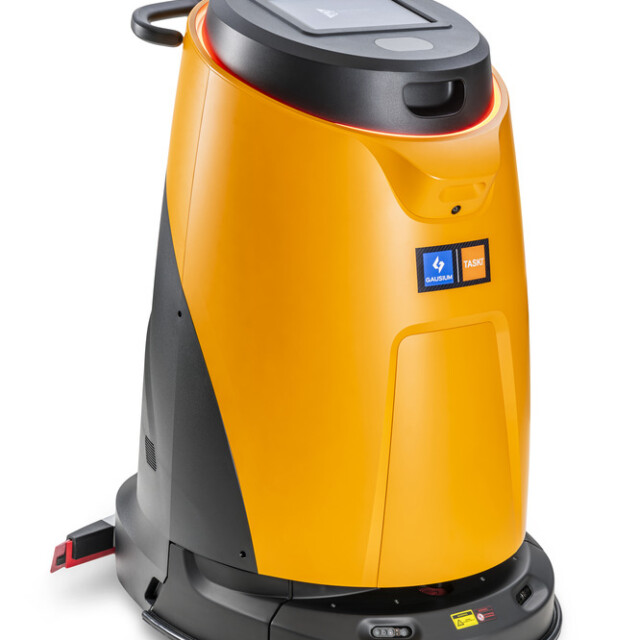
Tell us what you think
Be the first to comment this post.
You must be logged in to leave a comment.